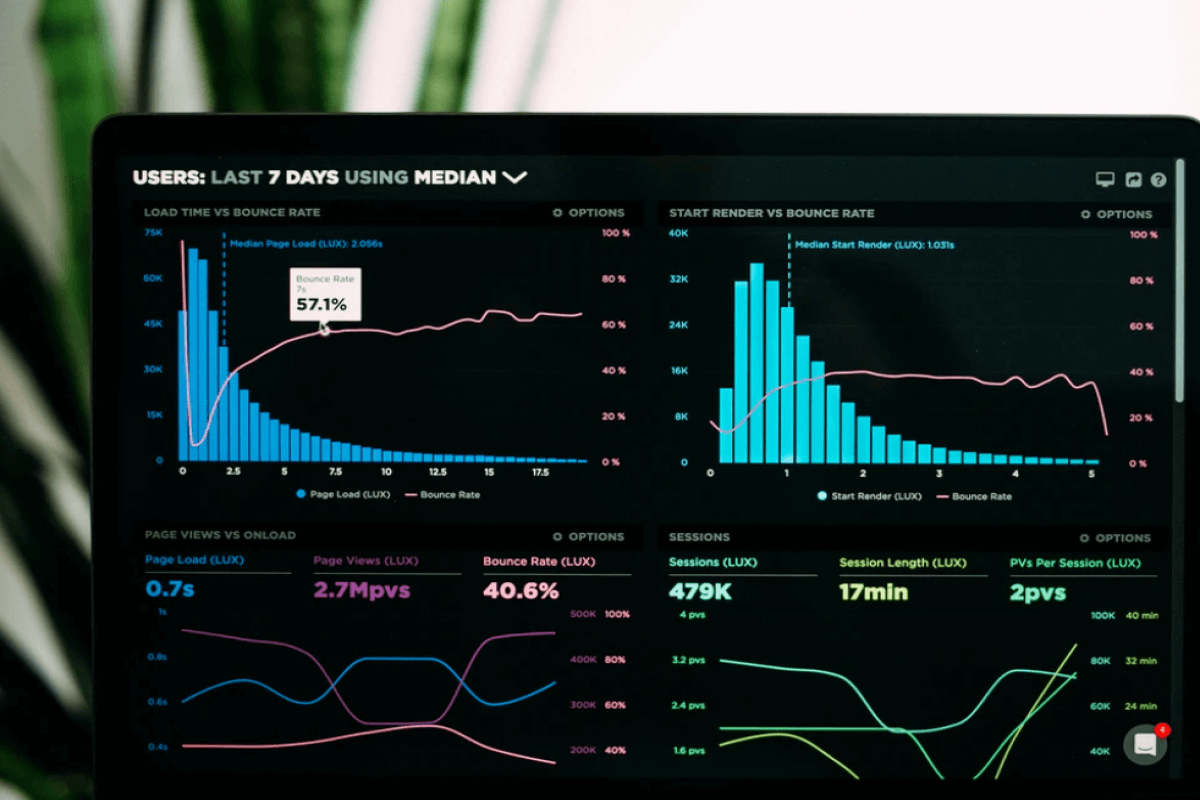
I’m Marsha Parker, the Strategist & Technology Leader at the Ford Motor Company in Detroit, MI. This article is part 3 of my 4-part blog series on data and analytics. Read the first article about data as a strategic asset here. Read the second article about data monetization here.
In this article, I’ll examine the value of socializing data within your company. We will explore the journey of how data is viewed at different levels of a company along with the benefits of socializing data.
Let’s start our journey by listening in on a conversation between two colleagues and their view of data as employees, consumers and data professionals.
James: Hey Tiffany! Have you heard about the company’s recent happenings surrounding our data journey? Leadership has taken a very open view to sharing data across the company, which focuses on empowering us to look at our own roles and how we can use data to drive business value. The company has created a shared services approach that enables us to align data needs across the organization. Some of the shared services include a governance council, access to analytical tools, training and establishing a common data repository.
Tiffany: Yes, I’ve heard! I was really surprised to see leadership take the stand that data will become available at all levels within the company. The company’s approach to making data readily available would enable us to make real time decisions based on factual data, which will help us move projects along quicker.
James: Agreed - I really believe this new way of thinking will help us problem-solve, visualize, model and analyze data to expedite the decision-making process. I know one of our company goals is to become more customer-centric and move the needle on innovation, and data democratization will help us do so.
Tiffany: This is really exciting. As a company, we’ve been on a journey to view data differently based on our own individual roles and experiences. This approach enables us to use data at various levels without the bureaucratic approval process.
James: But, doesn’t this open the door for potential risks? I’m not sure if I want to share my data models with everyone in the company. I know the data constantly evolves, and so do our data models. What if the data is taken out of context? How will we ensure data integrity? And, how will we empower consumers to understand the benefits of sharing their data?
This is where data strategy plays an important role, as it defines the vision for how a company will collect, store, manage, share and use data. 1 Data strategy will ensure that proper governance is implemented. Data governance establishes the policies and procedures for how data will be managed within an organization.
An organization’s data journey
As we noticed in the above discussion between James and Tiffany, the two colleagues want to understand the value of data in their roles as data professionals and enable the company to become customer-centric. In their discussion, they identified the benefits of a data-centric organization along with associated risks and need for data governance.
Data democratization is defined as a way to make data accessible to the average user, as many employees in any given company are non-data professionals. Often, data is managed by certain gatekeepers in an enterprise, which data democratization aims to combat.
The ultimate goal of data democratization is to make data readily available within an organization, reduce data silos, empower employees to take ownership and drive impactful business decisions. As data professionals, we want to encourage a sense of curiosity about data at all levels. Data democratization enables a shared vision, accountability and responsibility as we build partnerships within a company.
In a democratized organization, data is accessible by everyone through a shared services model and collaborative tools. For example, one central group manages data integrity and addresses any security issues.
As a company seeks to democratize data, there are a few things that they need to consider:
- Goal and drivers for democratizing data – what is your company’s game plan for using data?
- The strategic value of data – how will you position the data value chain as a strategic asset within the company?
- Data literacy initiatives – how will you build and maintain data literacy across the organization?
- Beyond data democratization - what’s next for your organization?
-
Goal and drivers for democratizing data
The ultimate goal of data democratization is to make data readily available within an organization to improve the overall health and performance of a company. Equal access to data enables a company to holistically understand data challenges, achieve synergy across the enterprise and capitalize on opportunities to generate additional revenue.
Data democratization starts with:
- Creating a data-focused vision and mission statement aligned with corporate business strategy
- Sharing data knowledge with the internal business community
- Socializing data findings along with business problems and challenges
- Investing in the right business intelligence tools for proper analysis and reporting
- Creating forums that allow for socialization and learnings at all levels of the company
Why would a company want to take this journey? Here’s a couple of reasons for socializing data:
- Creates a culture of inclusion & trust about data
- Empowers employees to make real-time data decisions
- Establishes transparency about data
- Maintains and advances technology development efforts
- Improves customer satisfaction & loyalty programs
In building a data-centric organization, companies will ensure a common single source of truth about their data.
Socializing data also enables a common data model schema for analysis, and creating a common data model will ensure consistency across applications. This approach also allows a company to build a collective view of data, which enables a holistic view of a consumer’s needs.
What are some barriers to creating a data-centric organization?
- Lack of senior leadership support
- Inconsistent messaging on the use of data
- Lack of a strong culture on data sharing
- Lack of training to address skill and knowledge gaps
- Inability to fund data-driven initiatives
- Inability to evolve technology or provide access to analytical tools
Overcoming these barriers will require a focus on building an organization that has strong leadership support, transparency about the use of data, a collaborative & trusting culture, deployment of self-serving tools and collective efforts to build data literacy skills at all levels.
“A data driven organization must have the right strategy, people, leadership support, processes and culture in place to augment or drive critical business decisions with analyses and therefore have a direct impact on the business.” 3 (J. Klahr, Harvard Business Review)
-
Identify the strategic value of data
As we start to recognize our appreciation for the value that data provides an organization, we realize that transforming data from its purest form into actionable insights requires engagement from all levels of an organization.
A data value chain visually represents the strategic value of data. Data alone is of little value to the business, but action and data combined deliver business value.4 As we climb up the data value chain, we must envision how we transform the data from reporting to actionable insights. We start by capturing and analyzing data in its purest form. As we maneuver the data through our business activities, we gain deeper insights that will ultimately deliver business value.
A key question becomes, “How can individuals and teams explore the value of data as they generate reports, conduct analyses and make strategic decisions?” The answer to this question is best displayed in the image below, which reflects the value of data from its lowest form to its optimal level.
Data value chain (Click here for a larger version)
Imagine in your role as a data scientist, you work with a business analyst to explore trends identified in reports provided to senior leadership. You might explore how to shape these trends into predictable models that can be used to identify future consumer behavior.
-
Build data literacy across the organization
As a data professional, you will become a data advocate. This means that you will work to socialize and publicize the benefits of capturing quality data. You will also ensure that data literacy is obtained at all levels of the company, and help build partnerships that advocate for data integrity in all business decisions.
Data literacy is best obtained by offering training on analytical tools, creating data curriculum plans, having data experts share their knowledge, proactively sharing data-driven insights and identifying leaders (advocates) as coaches within the organization. Data literacy thrives in a culture based on trust.
-
Move beyond data democratization – what’s the next step?
As we gain momentum about the value of data and its useful purpose within an organization, we start to move beyond socialization to promoting data stewardship. Data stewardship is aimed at ensuring personal accountability and ownership of data through effective controls. Controls include the use of governance models, data standards, quality controls and operations.
A company will eventually want to drive towards data intelligence, the interaction and analysis of diverse views of data in a way that is meaningful for the transformation of data. This community view of the data is where the powerful and rich insights occur that lead to transformational business results.
Data democratization is best enabled in an environment where a culture of trust is promoted and where the leadership’s vision promotes transparency about use of data. If data is readily and easily available, individuals at the organization are in turn enabled to innovate and ultimately produce positive outcomes for the organization. Democratization of data is not just a luxury, but a necessity of any organization in the 21st century.
Keep reading this 4-part data analytics series on the Becker blog to learn about how you can implement new data processes to best serve your organization.
Ready to begin your journey into a data-centered professional role? Enroll in Becker’s Data & Analytics for Business Professionals Certificate to learn about all things data management and organization. Bring your company into the 21st-century data landscape with help from Becker.
References
- Lotame. (2019). How to build a data strategy. Retrieved from https://www.lotame.com/how-to-build-a-data-strategy/
- Knight,M. Developing a functional data governance framework. (2019). Retrieved from https://www.dataversity.net/developing-a-functional-data-governance-framework/
- Klahr, J. (2019). Overcoming barriers to data impact. New tools and new data mindset can bring about real time decision-making. Briefing paper. Harvard Business Review.
- Infinit-o. The five differences between reporting and analysis. https://resourcecenter.infinit-o.com/blog/5-differences-between-reporting-and-analysis









